Our team optimises your online content through the SEO process; ensuring that search engines pick it up and display it as a top result, every time a search is initiated in your category. The design, the writing and the links of your content are meticulously tuned to deliver robust online visibility through this 'organic' optimization process.
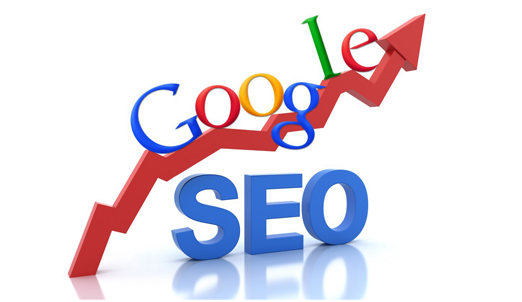
To understand what SEO really means, let's break that sentence down and look at the parts:
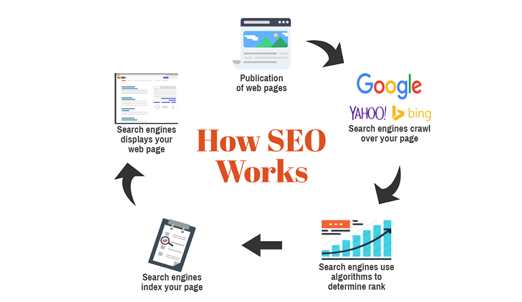
You might think of a search engine as a website you visit to type (or speak) a question into a box and Google, Yahoo!, Bing, or whatever search engine you're using magically replies with a long list of links to webpages that could potentially answer your question.
That's true. But have you ever stopped to consider what's behind those magical lists of links?
Here's how it works: Google (or any search engine you're using) has a crawler that goes out and gathers information about all the content they can find on the Internet. The crawlers bring all those 1s and 0s back to the search engine to build an index. That index is then fed through an algorithm that tries to match all that data with your query.

In today's competitive market, SEO marketing is more important than ever. Search engines serve millions of users per day looking for answers to their questions or for solutions to their problems.
As I mentioned above, SEO is not a static process but rather a framework with rules and processes.For simplicity though, SEO can be broken down into 3 main stages:
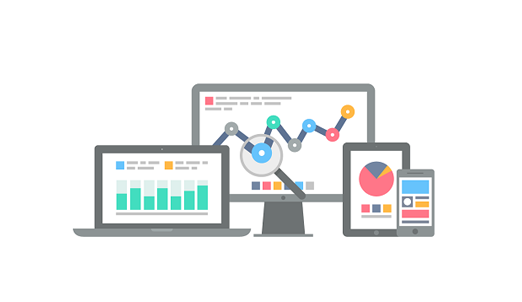
The first stage in the SEO process is called technical SEO. As the name implies, technical SEO has nothing to do with the actual content of a website or with website promotion methods.
It has to do with settings you need to configure to make the job of search engine crawlers easier. Usually, once you get your technical SEO correct, you may not have to deal with it again.
On the other hand, if you have problems with crawling and indexing, it can negatively impact on your rankings.
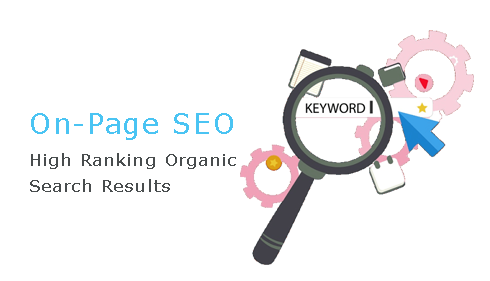
The second stage is On-Page SEO. On-Page SEO has to do primarily with the content and other elements found on a page. Unlike technical and off-page SEO, the main focus of on-page SEO is to provide search engine crawlers enough signals so that they can understand the meaning and context of your content.
Remember that search engines don't read a page like a human so they are looking for signals to figure out what a page is all about.
It is at this stage that you will deal with website structure, keywords, title optimizations, headings, internal links, image SEO, structured data markup and other techniques that can send the right signals to search engines.
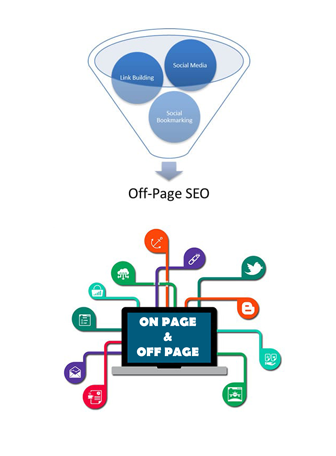
Besides the changes you can do to your website (on-site SEO) so that it ranks higher in the SERPs, the other way to improve your website's ranking position is by using off-site SEO techniques.
Off-site SEO is generally known as link building but I prefer to use the term web site promotion since a proper way to promote a website involves much more methods and techniques than building links.
In general, when a user types a search query, search engine algorithms look into their index and try to find the best pages that can satisfy the intent of the user. Pages that are good candidates appear to the first positions of the search results. One of the factors to determine the position a webpage in the results, is the number of incoming links (backlinks). Backlinks are a signal of trust and depending from where the links are coming, they can greatly affect your ranking position.
If the links are coming from well-known and trusted sites, your ranking will be positively affected. If they are paid links, links in article directories, link farms or a result of an exchange, your ranking will be negatively affected. Getting links this way, is a violation of Google guidelines and most probably it will also result in a Google Penalty.
This section of our site is here to help you learn anything you want about SEO. If you're completely new to the topic, start at the very beginning and read the Beginner's Guide to SEO. If you need advice on a specific topic, dig in wherever suits you.
Once you're ready to start walking that SEO walk, it's time to apply those SEO techniques to a site, whether it's brand new or an old one you're improving. These pages will help you get started with everything from selecting an SEO-friendly domain name to best practices for internal links.
A site isn't really a site until you have content. But SEO for content has enough specific variables that we've given it its own section. Start here if you're curious about keyword research, how to write SEO-friendly copy, and the kind of markup that helps search engines understand just what your content is really about.
You've already learned a lot about on-site topics by delving into content and related markup. Now it's time to get technical with information about robots.txt.
Dig deep into everything you ever needed to know about links from anchor text to redirection. Read this series of pages to understand how and when to use nofollow and whether guest blogging is actually dead. If you're more into the link building side of things (working to improve the rankings on your site by earning links), go straight to the Beginner's Guide to Link Building.
Congratulations! You've mastered the ins and outs of daily SEO and are now ready for some advanced topics. Make sure all that traffic has the easiest time possible converting with conversion rate optimization (CRO), then go micro level with local SEO or take that site global with international SEO.
Search engine algorithms change frequently and SEO tactics evolve in response to those changes. So if someone is offering you SEO advice that doesn't feel quite right, check in with the specific topic page.